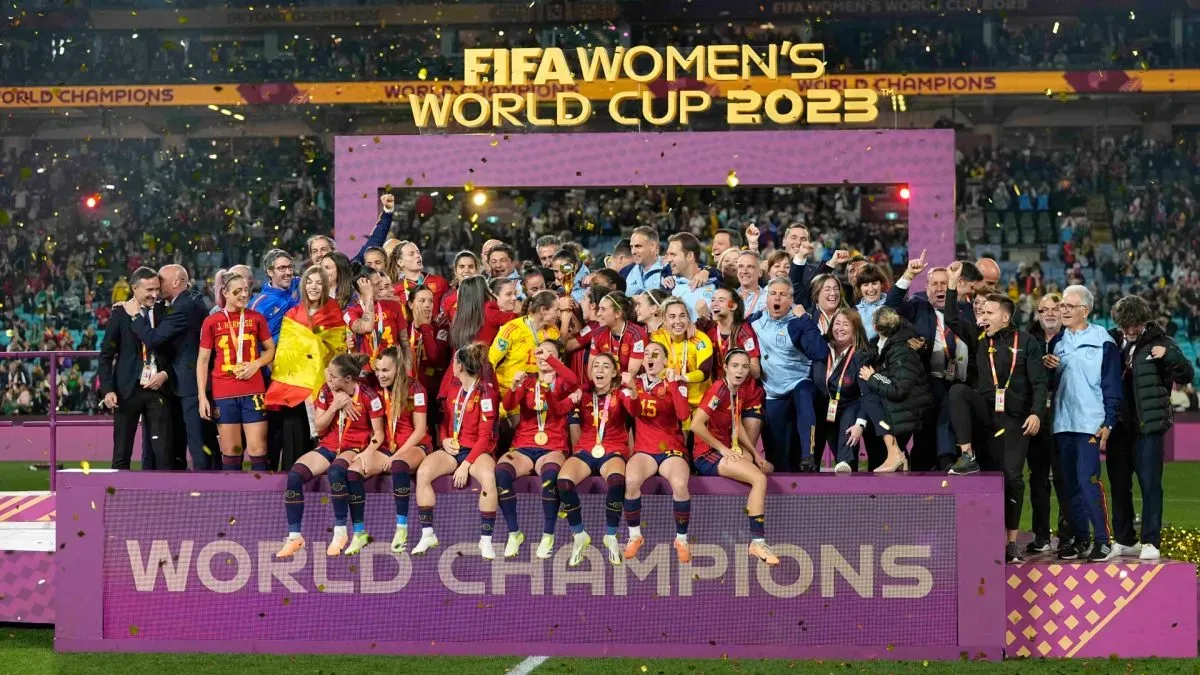FOX has set itself as the home of international soccer in the United States with media rights for the men’s and women’s World Cup. The broadcaster has the rights to the men’s World Cup through the 2026 tournament, which shapes up to be historic for those in the United States. However, after that, there is uncertainty. FOX has locked up the rights to the Copa America, European Championship and Gold Cup. Yet, other broadcasters will challenge FOX when it comes to the World Cup on both the men’s and women’s sides.
The next batch of media rights regarding the World Cup is the 2027 Women’s tournament in Brazil. Starting early in 2025, FIFA will field bids from different broadcasters to be the TV or streaming home of the tournament. John Ourand of Puck said there will be heightened interest from various American broadcasters. There are not many media rights offerings on the table, regardless of sport. Broadcasters looking to make a splash could thus turn to the Women’s World Cup as a chance to expand.
“Given the growth in women’s sports, the popularity of the U.S. Women’s National Team, and the lack of significant rights on the market, it’s a good bet that FIFA will generate a ton of interest,” Ourand said in his newsletter.
That begs the question as to which broadcasters would challenge FOX in this endeavor. According to Ourand, the principal candidates are NBC and ESPN. CBS, which has made considerable headway in soccer for both men’s and women’s competitions, could throw its name in the ring, too. However, there is currently uncertainty at CBS because of Skydance’s acquisition of Paramount.

ESPN, NBC to battle FOX for World Cup rights
NBC’s and ESPN’s goals differ greatly from those of FOX, which has based its soccer coverage on linear TV. The World Cups in 2022 and 2023 had full coverage available on FOX or Fox Sports 1. The same mostly applied to the European Championship, which sublicensed five games in the group stage exclusive to Fubo.
Meanwhile, ESPN and NBC have built up their digital and streaming content to make that the focus of their coverage. Adding something like the 2027 Women’s World Cup could add to their impressive arrays of content that presently exist on streaming platforms.
“After all, sports media executives have consistently pointed to soccer programming as an effective customer-acquisition tool for their streaming services—the rights aren’t backbreakingly expensive, the market is global, etcetera—and so the Women’s World Cup should be especially valuable to ESPN, which is launching a direct-to-consumer service next year, and NBC, which is trying to build out Peacock around live content,” wrote Ourand.
As Ourand notes, the Women’s World Cup rights are not overly costly. Therefore, NBC and ESPN may not have to break the bank to acquire these rights. There is an argument that this could also set a precedent for the men’s World Cup. For example, FOX may be inclined to pay more for the Women’s World Cup rights. That may open the door for other broadcasters to target the 2030 men’s World Cup, a tournament FOX does not currently have the rights to.
Note that the 2023 FIFA Women’s World Cup was the first time that the broadcasting rights to the tournament were sold separately from the men’s World Cup.
PHOTOS: IMAGO.














